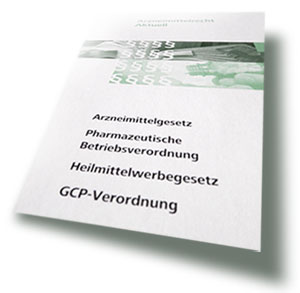 |
 |
|||||
 |
 |
 |
||||
 |
 |
|||||

Frequent questions for participating
(FAQ: Frequent asked questions)
Who can participate in clinical studies? |
The investigation plan for clinical studies names certain acceptance and non-acceptance criteria for participating, such as e.g. age, gender, nature and stage of illness, treatment made so far, and potential additional illnesses. Some studies are also looking for healthy participants. Prior taking of certain medicine can be of importance, too. These criteria serve the patients‘ safety and correctness of findings. |
| What kind of advantages do patients have when participating in clinical studies? |
A new treatment not yet accessible to the broader public might be applied to the participants. This might be a great chance for seriously ill patients in particular. Moreover, they can make use of medical treatment brought uptodate with medical knowledge. Medical care is much tighter and more intensive than outside studies. Last but no least, participants contribute to medical progress thus helping other patients. |
What are the risks involved in participating in clinical studies? |
| Treatment within a study can be accompanied by unpleasant or sometimes serious side effects. Tight checking, however, is ensured so that treatment is stopped immediately when such side effects arise. Furthermore, it might be possible that treatment does not have any effect at all. Participating in a study also requires more expenditure such as e.g. more contacts with doctors, potential stays in hospital or complicated rules of application. |
Is security of participants ensured |
Security of participants has top priority when carrying out clinical studies. In Europe, it is ensured by the guidelines of GCP (Good Clinical Practice) and detailed instructions. According to these, low doses are tested to start with that will be gradually increased. By doing permanent and careful checking, investigators make sure that side effects are realized at once and that treatment is stopped immediately in case of need. Before starting a study, qualified national institutions such as the ethic‘s committee, check whether patients might be exposed to risks that cannot be justified medically. Even during the course of a study, the ethic’s committee could withdraw its approval e.g. due to side effects arising. |
How is admission procedure going and what role does the ethic’s committee play? |
An application for approval has to be made with the Federal Institute for drugs and medical products (BfArM) for each clinical study. This can only be done after completion of a comprehensive pharmacological and toxicological investigation. This application contains the results of pre-clinical studies, investigation plan, patients‘ information, declaration of approval as well insurance confirmation. All documents are being checked with a view to their harmlessness, understandability and legal points of view. Moreover, the documents and qualification of investigators and study centres is checked by the competent ethic’s committee consisting of medical experts, a jurist and a medical layman. Only upon receipt of the ethic’s committee’s and federal institution’s approval, a study can start. |
What does the declaration of approval mean? |
Before a participant declares his approval, he will be exactly informed by the investigator regarding the course of the study, the use and the risks related thereto. This information is given to the participant in written form, too. Of course, the patient has the possibility to clarify all his questions with the doctor. The participant will also be informed about passing of data within a study which are absolutey confidential and subject to data protection. A participant should only give his written approval after having been informed extensively and after having considered all advantages and disadvantages a study might have for him. By his approval, he confirms his volontarily participating in the study. He has got the right to withdraw his approval without stating reasons at any time without losing out by it. |

Home
Contact
Tips how to get here
Link list
FAQs
Glossary
Newsletter
Imprint/
data protection
Clinical Research Hamburg GmbH · Rahlstedter Bahnhofstr. 33 · 22143 Hamburg
Tel: +49 (0) 40 631297-0 · Fax: +49 (0) 40 631297-19 · Email: info@crh-hamburg.de